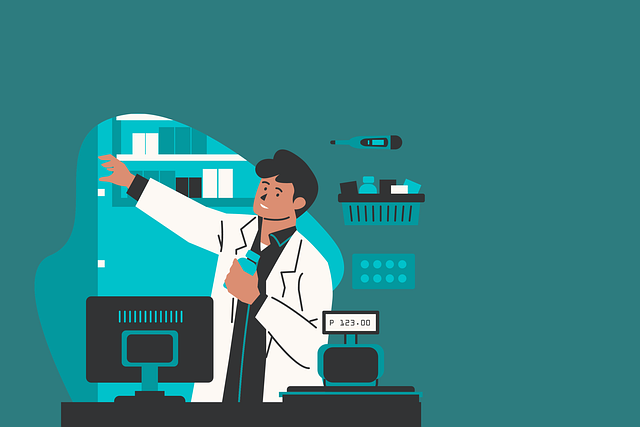Understanding testosterone levels through professional screening is crucial for men experiencing low T symptoms. This process involves a simple blood test to check total testosterone. Early identification allows for natural strategies like diet changes (zinc, vitamin D, magnesium-rich foods) and exercise (HIIT, strength training, meditation, yoga, adequate sleep). Professional guidance ensures safe use of herbal remedies and supplements, which require caution due to variable effectiveness and potential side effects.
“Discover natural ways to boost low testosterone in men, a common concern with significant implications. Understanding testosterone levels is crucial, starting with professional testosterone screening—a comprehensive guide for accurate assessment. Explore dietary approaches, exercise routines, and lifestyle changes designed to optimize hormone balance naturally. Delve into herbal remedies and supplements, examining their potential benefits and risks. Reclaim vitality and embrace a healthier, more energetic life.”
- Understand Testosterone Levels: Professional Screening Guide
- Dietary Approaches to Elevate Testosterone Naturally
- Exercise and Lifestyle Changes for Optimal Hormone Balance
- Herbal Remedies and Supplements: Potential Benefits and Risks Assessed
Understand Testosterone Levels: Professional Screening Guide

Understanding your testosterone levels is a crucial step in troubleshooting low testosterone symptoms. Many men experience declining testosterone as they age, leading to various physical and mental changes. A professional testosterone screening guide can help determine if this hormonal shift is within a normal range or requires intervention. This process typically involves a simple blood test that measures the amount of total testosterone in your body.
Professional testosterone screening is essential for evaluating both overall health and specific concerns like fertility issues. Testosterone levels play a significant role in reproductive health, muscle mass, bone density, and energy levels. By why measure testosterone levels, healthcare providers can identify imbalances early on, offering targeted strategies to boost testosterone naturally through lifestyle changes, dietary adjustments, or—if necessary—medical treatments.
Dietary Approaches to Elevate Testosterone Naturally

Men looking to boost their low testosterone levels can start by considering some simple dietary adjustments. A balanced diet rich in fruits, vegetables, lean proteins, and healthy fats provides essential nutrients that support hormone production. Specifically, foods high in zinc, vitamin D, and magnesium have been linked to improved testosterone levels. These include seafood, eggs, nuts, seeds, dairy products, and leafy greens.
When it comes to evaluating testosterone health, professional testosterone screening through a comprehensive hormone panel is crucial. Comparing testosterone lab tests can help identify deficiencies or imbalances that may require intervention. While some men might consider is testosterone testing necessary, understanding one’s hormonal profile can be an essential step in developing a tailored strategy for boosting testosterone naturally and safely.
Exercise and Lifestyle Changes for Optimal Hormone Balance

Regular exercise is a powerful tool to help maintain and optimize hormone levels, including testosterone. Engaging in consistent physical activity stimulates various hormones that can boost testosterone production. For instance, high-intensity interval training (HIIT) has been shown to increase testosterone levels post-workout, offering a quick and effective way to enhance hormone balance. Additionally, strength training with weights is another essential component, as it promotes muscle growth and improves insulin sensitivity, both of which are linked to healthier testosterone readings.
Lifestyle choices play a significant role in achieving optimal hormone levels. A balanced diet rich in lean proteins, healthy fats, and complex carbohydrates provides the body with the necessary nutrients for hormone production. Managing stress is also critical; chronic stress can disrupt hormonal equilibrium. Incorporating relaxation techniques like meditation or yoga into daily routines can help regulate cortisol levels, indirectly supporting testosterone balance. Moreover, ensuring adequate sleep (7-9 hours) is essential as it is when the body produces and releases the most testosterone, underlining the importance of professional testosterone screening for accurate understanding of blood test results, especially for men considering sports performance testing or healthy aging strategies.
Herbal Remedies and Supplements: Potential Benefits and Risks Assessed

Herbal remedies and supplements have gained popularity as natural ways to boost testosterone in men with low levels. While some offer potential benefits, it’s crucial to approach them with caution and consider both the advantages and risks. Many herbs and supplements contain compounds that may help regulate hormone production, but their effectiveness and safety can vary widely.
Professional testosterone screening is essential before trying any complementary treatments. Comparing testosterone lab tests results interpretation guide can provide valuable insights into hormone levels and guide choices for natural boosters. However, not all supplements are created equal, and some may even have side effects or interact with medications. Therefore, it’s vital to consult a healthcare professional who can recommend evidence-based options and ensure the safety and efficacy of the chosen approach.
In conclusion, boosting low testosterone naturally is achievable through a combination of dietary adjustments, regular exercise, and, in some cases, herbal supplements. Before embarking on any treatment, it’s essential to consult a healthcare professional for a comprehensive professional testosterone screening to understand your specific needs and rule out underlying health issues. By adopting these natural strategies, men can strive for optimal hormone balance, enhancing overall well-being and quality of life.
